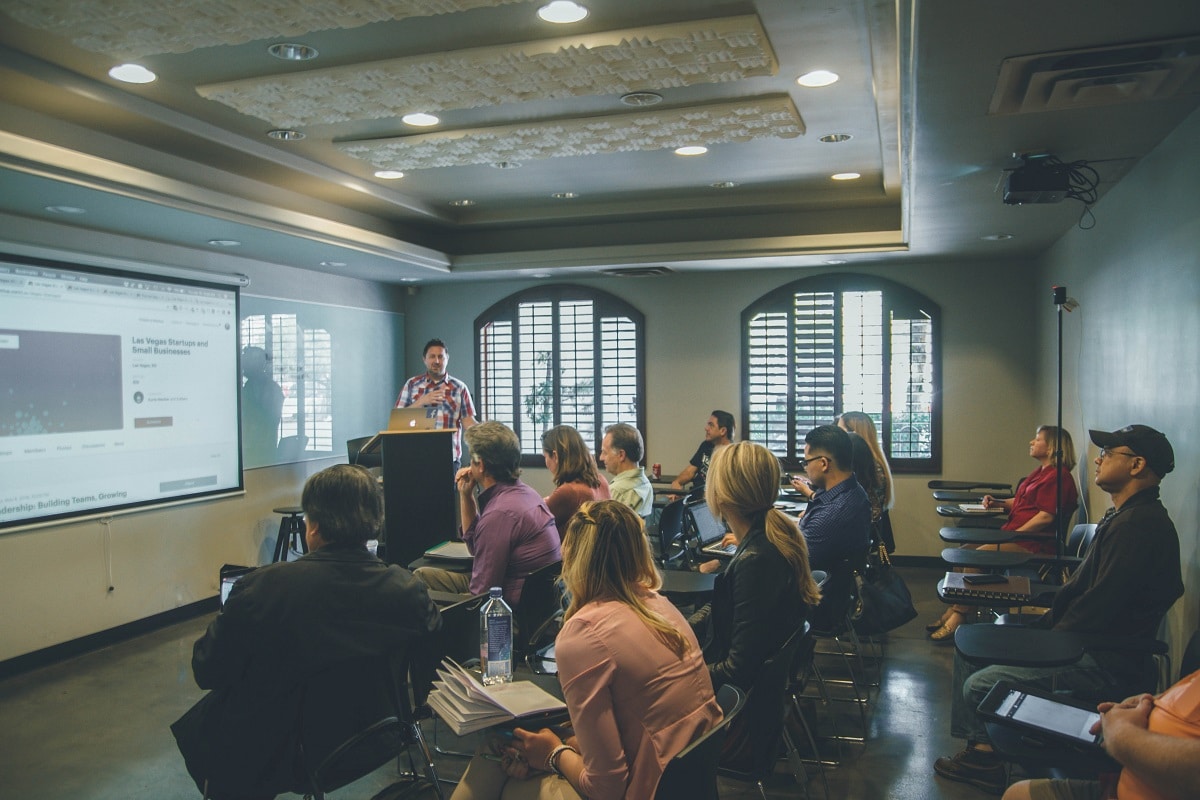
What Is A Case Interview?
In your job application, you might have been asked to attend a case interview. If you are nervous because you do not know what a case interview involves or what to expect.
Keep reading as we educate you about the intricacies of case interviews and how you can best prepare for them.
Table of Contents
What Is A Case Interview?
Case interviews can be conducted individually or in group exercises. During a case interview, an interviewer poses a question, challenge, or situation to the candidate. The candidate is expected to solve what is given to them.
A case interview is used to determine how a candidate thinks about a problem and how they would go about solving the issue using the hypothetical situation given by the interviewer. The hypothetical situations are not just random thought exercises, as the questions or situations do pertain to the field the candidate is applying for.
Case interviews were primarily used when interviewing for a position in a management consulting field, but the concept has been broadened over the years to apply to other industries. Today, consulting firms use case interviews to look for certain skills in candidates that would be needed for the job.
These skills include:
- Logical reasoning
- Analysis
- Problem Structuring
- The ability to communicate conclusions
- The ability to draw conclusions from a set of information or data
In asking a candidate to examine a solve a particular question or situation, the interviewer is able to better assess the abilities of the candidate when it comes to these particular skills. The interviewer is then better able to understand the thought process and abilities of the candidate in order to determine if they are the right fit for the job.
They have been used for decades due to their reliability and being the best tool to find the candidates that the company is looking for. Most case interviews focus on using estimation questions since they are involved in most real-life client situations.
The candidates who do well during a case interview are the ones who excel in both intrapersonal skills and estimation questions.
How Is It Different From Other Types Of Interviews?
While you may think a case interview is just like all other job interviews, they are actually very different. In a traditional job interview, you are typically asked questions based on your experience, education, or skills based on the job you are interviewing for and the information on your resume.
Case interviews, on the other hand, are designed to mirror an aspect of the on-the-job experience the candidate may face when working in the field, so they can find the best potential candidates.
Since case interviews are connected more to management consultant or investment banking jobs, it is likely that you have not experienced a case interview unless you have applied before for one of these jobs.
Rather than focusing on past or present experiences with a certain issue or topic, case interviews present a situation to you and you have to work through the situation on the spot. If a candidate shows a lack of confidence or nervousness when doing the case interview, this can cause the candidate not to be picked.
This is because a client wants to have confidence in you to understand their issue and give them an answer that you seem confident in. If you doubt your answer, the client will begin to doubt your recommendation, which can cause the client to lose faith in both you and the firm.
By doing case interviews, the interviewers can find candidates that will handle situations without showing doubt, allowing them to win over and keep the client’s trust.
Which Companies Use Case Interviews?
As mentioned, case interviews are primarily used in the management consulting industry and the investment banking industry. However, in recent years, case interviews have broadened their reach, and many other industries have begun to use them when interviewing candidates.
There are two types of case interviews that are used by companies; these are candidate-led case interviews and interviewer-led case interviews. Candidate-led case interviews are used by companies such as BCG, Deloitte, LEK, and Bain. Interviewer-led case interviews are used by companies such as Oliver Wyman, Accenture, and McKinsey.
Interview Questions and Format
Not all case interviews look the exact same. The interviewer may ask different questions to different candidates in order to get a better understanding of how each individual candidate will respond to certain problems or situations.
Case interviews tend to consist of both quantitative questions and qualitative questions. If you are given questions that are more quantitative in nature, you will be asked to do basic mathematical operations and perform numerical calculations.
Conversely, if you are presented with qualitative questions, you will be given questions that focus more on market analysis, strategic decisions, and future projections.
The time given for case interviews is approximately 45 minutes. You are given 30 minutes to go through the information given to you. It is also during this time that you put together your answers and conclusions.
You are then given 15 minutes to present your findings to the interviewer. If you do a presentation-led case interview, the timing is approximately 2 hours.
Along with different questions, case interviews can also come in different formats. There are five different formats for case interviews.
These formats are:
- Candidate-led scenarios
- Interviewer-led scenarios
- Group scenarios
- Written case
- Presentation-led scenarios
-
Candidate-led Scenarios
Candidate-led scenarios are designed for the candidate to lead the discussion and drive the case from the beginning until the end. While this format for case interviews is less structured and more ambiguous than interviewer-led scenarios, this format is meant to illustrate your ability to handle an entire problem-solving process from beginning to end.
During this interview, you, as the candidate, will be given an open question that you are to solve. It is then your job to lead the interviewer to a solution.
-
Interviewer-led Scenarios
Unlike the candidate-led scenario format, the interviewer-led scenario is very structured. In this format, the interviewer will control the focus, tempo, and sequence of the process.
Where the candidate-led scenario can be equivalent to an essay question on a test, the interviewer-led scenario is more like a multiple-choice question on a test.
This type of format is still used to observe analytical, leadership, and problem-solving skills, but you also need to exhibit the ability to transition well from one question or topic to another.
During this type of scenario, the interviewer leads you through the scenario in a structured process rather than allowing you to take the reins in order to navigate through the scenario.
-
Group Scenarios
While candidate-led scenarios and interviewer-led scenarios involve having you work through the problem or situation on your own, there are also group scenarios that require you to work with a team of other candidates to solve the problem or situation.
Even though this format for case interviews tends not to be as popular as candidate-led scenarios and interviewer-led scenarios, these case interviews give you an indication of what it is like when you are an actual consultant.
Essentially, this format is meant to showcase your ability to work with a team to come up with a solution rather than just relying on yourself.
-
Written Case
With a written case format for a case interview, the main skill being observed here is your ability to take a set of data and interpret it to find a solution to the problem or situation.
This format involves another person coming up with the data and the hypothesis. It is then your job to take the hypothesis and test it against the data.
It will be your job during this form of case interview to figure out if the hypothesis is right or not and why it is right or wrong.
-
Presentation-led Scenario
Presentation-led interviews tend to take longer than the other formats for case interviews. Throughout the course of 2 hours, you are to go through charts and data, create a hypothesis, structure an issue tree, and analyze your findings. You then present these findings to the interviewer in the form of a presentation or slideshow.
During this presentation, the interviewer will question your findings, and they expect you to defend your findings and be able to back up what you say with your analysis. This format puts more emphasis on the results rather than the process.
When it comes to a case interview, practice makes perfect. The way you manage your time is ultimately being put to the test, and the key to a successful case interview is learning to work fast and efficiently, which can be done by identifying key issues and ignoring what is not pertinent.
Tips To Excel In Case Interviews
Take Your Time
It is important to remember that even though you might be working against the clock to get the job done, you cannot sacrifice efficiency or quality.
Maintain a Consistent Hypothesis
One of the best general strategies that you can use is to stay hypothesis-driven throughout the case. You want to be working on answering an overall question, and at the end of every section, you want to make an interim suggestion analyzing what you believe the client’s next move should be.
Manage Your Time
Time management is key in this scenario. You must be able to prioritize what is important over what is superfluous and address those things respectively.
Ask Questions
It is important to tap into your natural problem-solving skills. In these types of situations, you might feel the instinct to isolate different areas of uncertainty and laser in on those. As you go along in a case interview, voice those uncertain areas, as it will help your thinking process better.
Double Check Answers
Normally, case studies are designed to have more than one right answer, but as you are working through them, be sure that you are choosing the answer that seems to be the most logical.
How To Prepare For a Case Interview
Oftentimes, candidates go right into their preparation and practice without having a proper plan to guide them through. Without a plan, a study session will become ineffective.
Go Over the Sample Questions
If you do not know what kinds of questions to prepare for, how can you practice in a meaningful way? This is where JobTestPrep’s Interview PrepPack comes into the picture. With the resources and tools in their PrepPack, you will be able to know just what to expect and what your strengths and weaknesses are.
So instead of just practicing general interview skills, fine-tune your practice sessions with actual sample questions from JobTestPrep.
Review and Respond
As you are preparing to go into your case interview, you really want to emphasize on practicing answering the questions out loud. Without proper preparation, you might stumble over your words, or you might say something in a way that does not get your point across.
Ask family, friends, or even a career counselor if you can practice with them. In fact, it is possible that you may know someone who has conducted these types of interviews before and has the knowledge to give you the best advice on where to improve and prepare for your real interview.
Track Your Time
While you are preparing for your case interview, it would be a good idea to use a stopwatch to time yourself. Keep in mind that most case interviews only last about 15-30 minutes. That is not a lot of time at all. This is why it is so important to be fully prepared.
The more you practice and prepare now, the better off and more comfortable you will be once the real interview comes along. Do not take for granted the window of time you have to really nail down a consistent and concise case study.
Conclusion
When it comes to your case interview, being well-prepared will give you the best chance at success. You need to exude confidence and remain calm while presenting your answers in a clear and logical manner.
This is why it is so important to practice with JobTestPrep’s Interview PrepPack. Take advantage of all the tools and resources provided to help you improve and evaluate your interview skills for the best results.
Sarah is an accomplished educator, researcher and author in the field of testing and assessment. She has worked with various educational institutions and organisations to develop innovative evaluation methods and enhance student learning. Sarah has published numerous articles and books on assessment and learning. Her passion for promoting equity and fairness in the education system fuels her commitment to sharing insights and best practices with educators and policymakers around the world.








